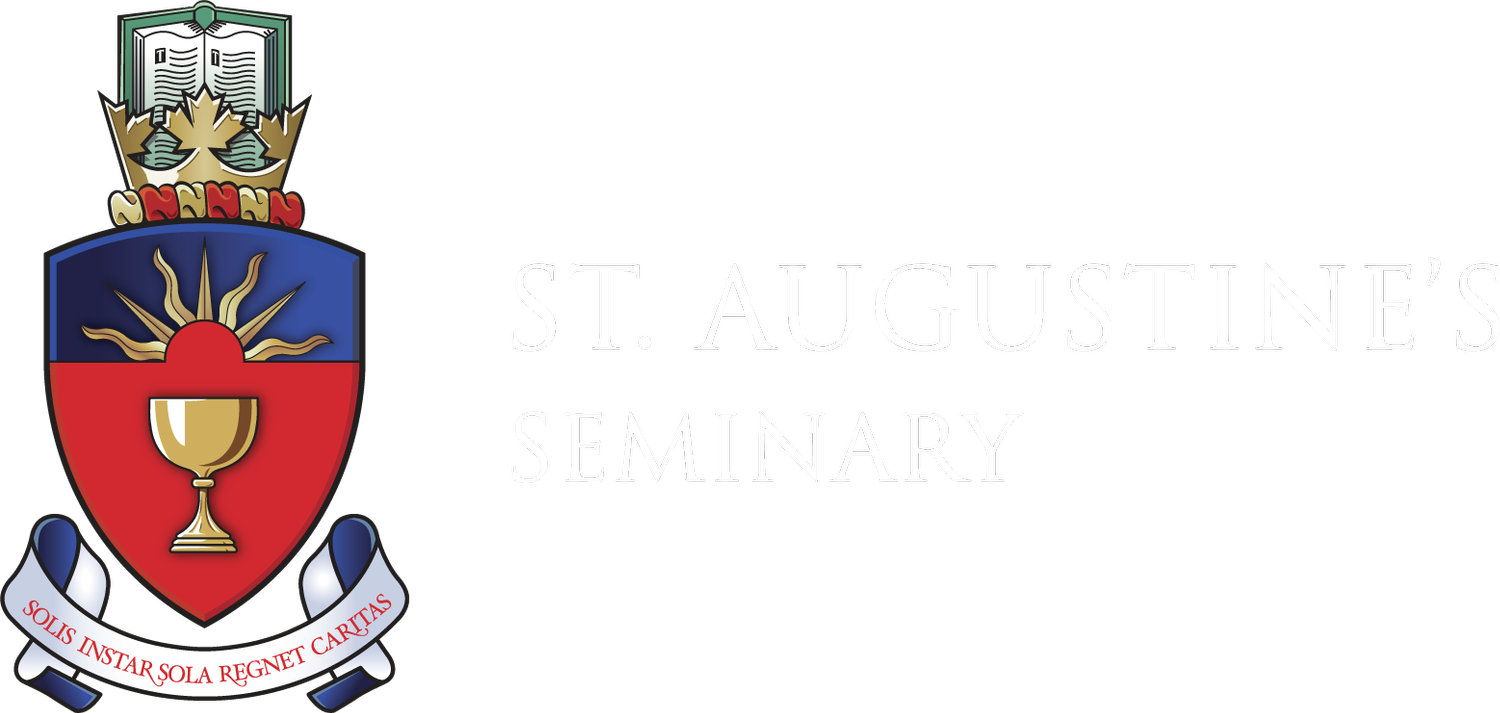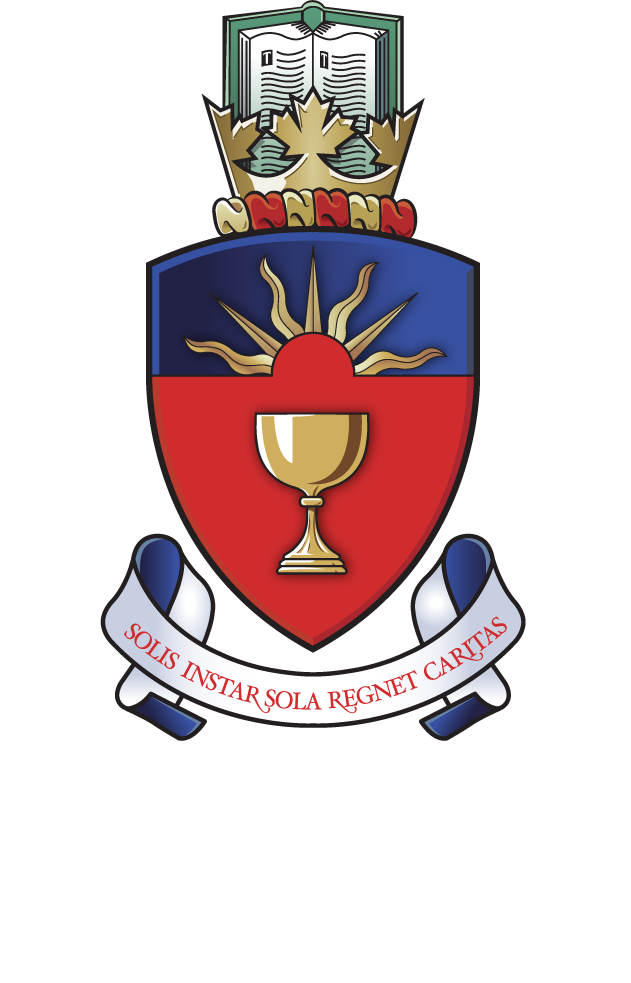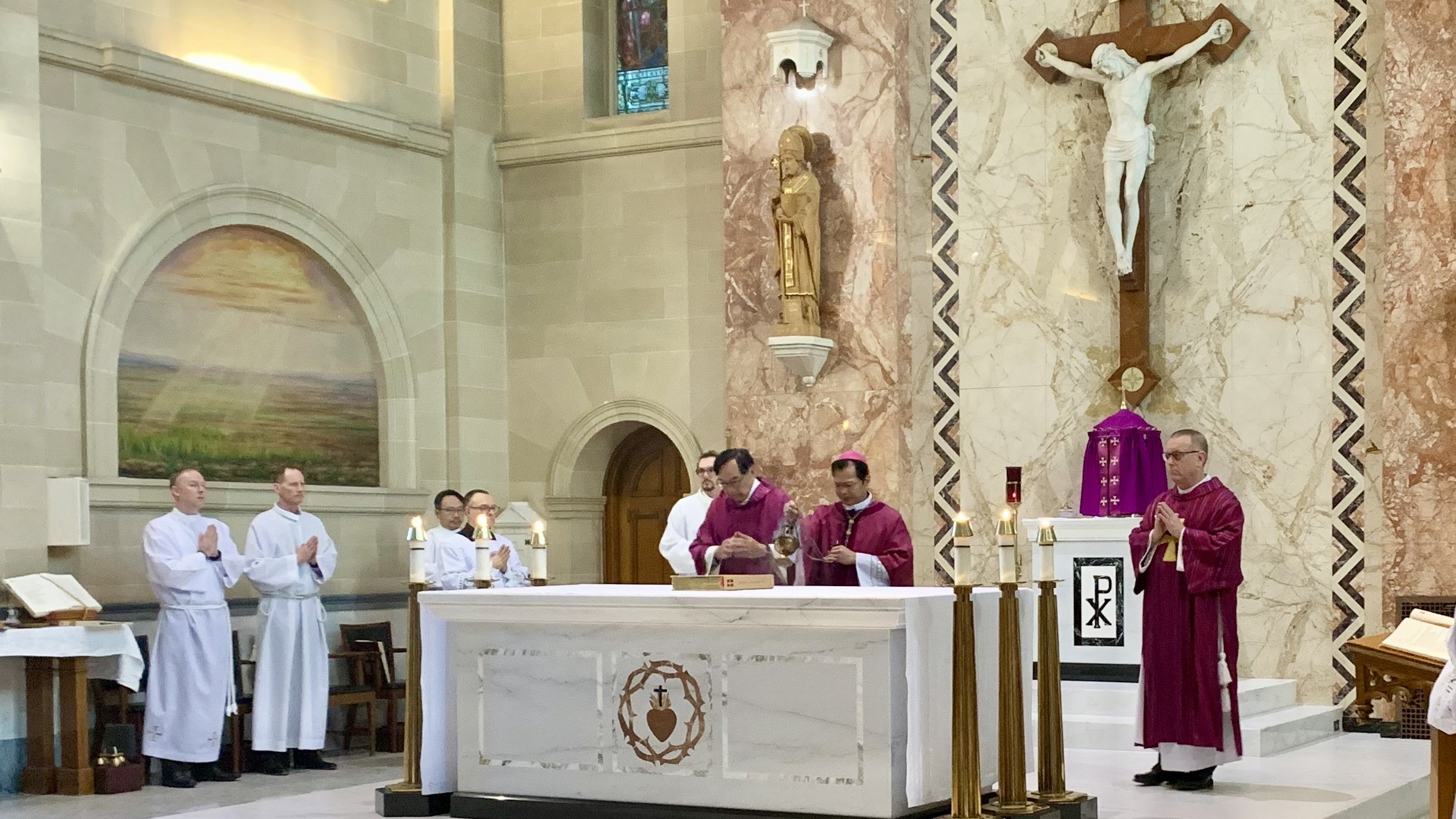Diaconate Formation
St. Augustine’s Seminary’s Permanent Diaconate Formation Program prepares candidates for ordination as permanent deacons for the Archdiocese of Toronto. The program includes both a propaedeutic year of intensive discernment (once a month on Saturdays) for aspirants and four years of formation for candidates. The formation program follows the National Directory for the Ministry, Formation and Life of Permanent Deacons in Canada, (CCCB), 2017.
The Coordinating Director of Diaconate Formation in consultation with the Rector organizes the various aspects of the program. Members of the formation team include experienced deacons, their wives, professors, supervisors, facilitators, and a chaplain.
Admission Requirements
1. No impediments as outlined in Canon Law
2. Completion of the Propaedeutic Year
3. Acceptance by the Admissions Committee
4. Completion of the Academic Application Form with official transcripts from all post-secondary institutions
5. Bachelor’s degree or non-traditional student with an appropriate background
The Program
The program consists of a propaedeutic or spiritual year and four years of formation. Those interested in applying should contact the Office of Clergy Personnel and Chaplaincy at the Archdiocese of Toronto, 416-934-3400 Ext. 304. This office will explain the application process and what documents are required for it. The Admissions Committee will inform applicants preceding a fall start-up, as to whether or not they have been accepted into the propaedeutic year.
Propaedeutic Year
The one-year propaedeutic period is an aspirancy year of prayer, study, and discernment. It is offered every second year. Aspirants and their wives pray the Divine Office, engage in spiritual exercises including holy hours, study the Catechism of the Catholic Church, read Church documents on the diaconate, discuss the diaconate with deacons and their wives, and enter into discussions with each other on questions concerning the diaconate.
The various facets of the propaedeutic year inform each aspirant couple’s reflection and discernment. At the end of the propaedeutic stage, aspirants confirm their discernment as to whether they want to become candidates. The Admissions Committee will on its part discern which of these aspirants will enter the four-year formation program.
Four-Year Formation Period
Candidates attend one weekend a month from September to June over four years at St. Augustine’s Seminary for spiritual, academic, pastoral, and human formation. In addition, they meet in small groups weekly for prayer, study, discussion, reflection, and continuing discernment.
This four-year program integrates the spiritual, academic, pastoral, and human dimensions into a preparation that is vital for a person seeking a life of commitment to Church service. Such preparation and integration foster a spirit of community among the candidates and their families.
The spiritual formation process under the direction of a chaplain integrates the doctrinal, theological, Biblical, and ministerial development for the expression of a life lived in a Catholic Christian faith. The candidates practice methods of prayer, contemplation, and discernment. The program requires all candidates to see a spiritual director (priest) and to make an annual retreat given through the Diaconate Formation Program.
That curriculum encompasses ten foundational courses in the Old Testament, New Testament, Christology, Ecclesiology, Theological Anthropology, Moral Theology and Ethics, Pastoral Ministry, Liturgy, Sacraments, and Spirituality in addition to co-curricular courses in pastoral ministry, field education, liturgical presidency, and a study of the social teachings of the Church.
The pastoral formation process involves courses in pastoral ministry, counselling, and spiritual direction as part of the diploma program. In addition, in preparation for their charitable ministry, candidates participate in a minimum six-month Supervised Pastoral Placement Experience under the guidance of a supervisor. Candidates participate in a proclamation and preaching practicum throughout the four years of the formation program. To improve their future ministry of preaching, candidates are given opportunities to prepare and preach reflections in their parishes under specific conditions with the permission of the Archbishop. This takes place in the fourth year of the program. Finally, candidates engage in liturgical praxis preparing them for their roles in liturgy.
The human formation process is engaged in weekly group meetings with a mentor couple. The candidates and their wives build relationships with their mentors and each other as they develop the interpersonal and human skills essential to them as candidates and to ministry. In addition, on Seminary weekends, candidates meet for communal prayer, Liturgy of the Hours, Eucharist, Benediction, and meals with the seminarians. They come together for other events at the Seminary throughout the year that build community. Wives of candidates participate in an ongoing women’s program, specific to each year of formation. That program includes regular group sessions, spiritual direction, and retreats.
Candidates petition for acceptance into Candidacy at the end of the first year of formation. In the second year of formation, candidates are instituted to the Ministry of Lector and in their third year, to the Ministry of Acolyte. By December of their fourth year, the candidates, having exercised the Ministries of Lector and Acolyte, as well as having discerned their call and ministry of service, express their intention to seek ordination to the Diaconate, make a public Profession of Faith, and sign the Declaratio. Candidate's wives sign a document of consent. With the Archbishop’s approval, the candidates are called to the Sacred Order of Deacon.
At the end of the fourth year, conditional upon fulfillment of all program requirements, the written consent of the candidate’s wife, the recommendation of the Formation Committee and the Director of the Formation Program, and with the Archbishop’s approval, the candidates are ordained to the Sacred Order of Deacon.
The requirements for the Diploma of Theological Studies are:
Core Courses [10]
Foundations of Theology
Introduction to New Testament
Introduction to Old Testament
Christology and Homiletics
Ecclesiology
Fundamental Christian Ethics
Pastoral Norms on Marriage
Sacramental Theology
Spirituality in Pastoral Ministry
Theological Anthropology
Plus, the following Co-Curricular Courses [3]:
Pastoral Ministry
Field Education
Liturgical Presidency







